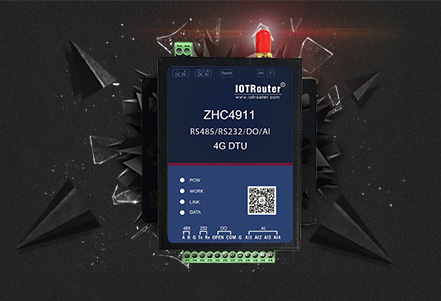4G DTU and 4G industrial router are both wireless terminal devices that implement wireless network data transmission functions, but there are still some significant differences between the two, which can be distinguished from the four aspects of network interface, usage, network anti-interference, and application environment. they.


1. Different network interfaces:
4G DTU data access generally also provides serial ports or network interfaces, but their purpose is for dialing, not as a real gateway. For example, after the 4G DTU serial interface completes dialing in the access terminal device , 4G DTU is treated as a new network device for the terminal device, and the address of the terminal device uses the address bound to the new network device; and the 4G DTU of the network interface is similar to Telecom’s ADSL Internet access, which generally requires the device to complete a dialing action. .
The 4G industrial router provides a network interface for data access. The terminal device only needs to use the IP address of the network port of the 4G industrial router as the gateway. The terminal device must use the specified IP address or an address in the specified IP address segment. , the 4G industrial router can exchange data with the server host with the specified IP address or the server host in the IP address segment. All other unset addresses of the 4G industrial router cannot communicate with each other.
2. Differences in usage methods:
The main purpose of 4G DTU is to implement dial-up, not a gateway in the true sense. For example, after the 4G DTU is connected to the terminal device and completes the dial-up process, the 4G DTU can be used as a new network device, and the terminal device address can be bound to the 4G DTU address.
The 4G industrial router can convert Ethernet and fieldbus communication protocols. You only need to set the IP address specified by the 4G industrial router on the terminal device as the gateway. If the specified IP address (or specified IP address segment) is not set, the communication function cannot be implemented.
3. Network anti-interference is different:
There is no relevant filtering during data transmission when using 4G DTU, so other machines can directly send some illegal information to the device terminal through the network. At the same time, 4G DTU increases unnecessary network traffic; at the same time, the data is not processed accordingly. This may cause system anomalies due to replay or retransmission of wireless data, thus posing security risks.
The use of 4G industrial routers must comply with preset regulations when transmitting data, otherwise communication cannot be carried out correctly, reducing the possibility of unnecessary network traffic; at the same time, key processing such as the sequence number sent can be used to ensure that the server data will not be replayed or retransmitted.
4. Different application environments:
The transmission distance of 4G DTU applications in field terminals is relatively scattered and the data communication rate is high. Therefore, the real-time performance of 4G DTU can satisfy most industrial fields and is usually used for data collection and monitoring systems. For example, environmental detection systems, real-time energy consumption monitoring, charging pile remote monitoring systems, dam water conservancy project monitoring applications, etc.
4G industrial routers usually have VPN/APN functions and private network encryption. In addition, 4G industrial routers with WIFI functions are suitable for projects with outdoor WIFI wireless signal coverage and shared projects such as shopping mall WIFI and bus WIFI.